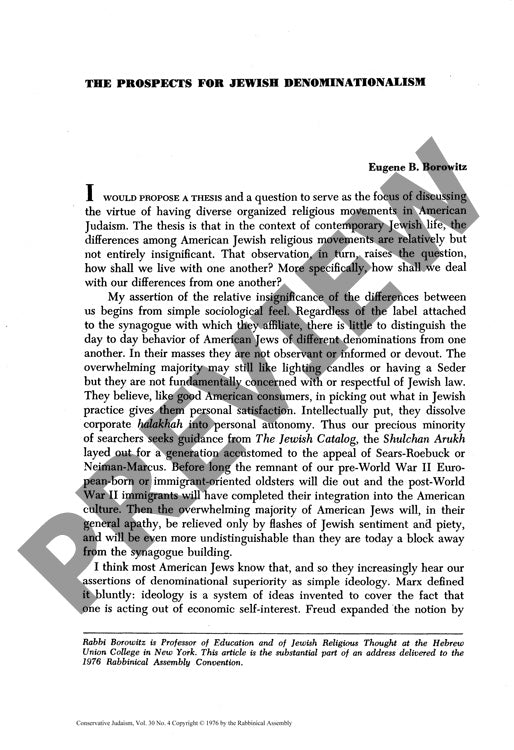The Prospects for Jewish Denominationali
Couldn't load pickup availability
American Jewish denominations, despite their formal distinctions, reveal remarkably similar patterns of religious practice and communal life in contemporary society. Through sociological observation and theological analysis, the research demonstrates that denominational differences are "relatively but not entirely insignificant." While American Jews maintain formal affiliations with different movements, their day-to-day behaviors show consistent patterns of selective observance and consumer-oriented approaches to Jewish practice. Several powerful unifying factors bridge denominational divides: the influence of democratic pluralism on communal structure, shared responses to the Holocaust, widespread support for Israel, and parallel academic methodologies used by denominational scholars. The analysis particularly highlights the subtle nature of differences among modernist movements like Conservative and Reform Judaism, where distinctions appear more temperamental than fundamentally philosophical - a finding supported by examination of halakhic reasoning, decision-making processes, and approaches to controversial issues such as women's ordination. While denominational frameworks serve important purposes in maintaining ideological accountability, shared commitments to God, Jewish peoplehood, and tradition ultimately transcend theological differences. These findings suggest that American Jewish denominations function as complementary rather than competing approaches to preserving and developing Jewish life in modern times.

More Information
-
Physical Description
-
Publication Information
Published 1976
ISBN
-
Publication Credits
Eugene Borowitz

